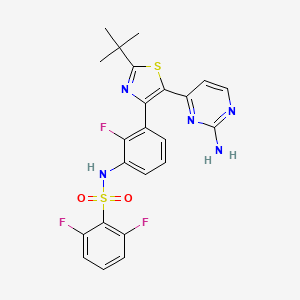A high response rate with a single drug in a phase I/II trial of paediatric brain tumour has set the stage for combination therapy with higher response and lower toxicity, researchers reported at the ESMO 2016 Congress in Copenhagen.
"The likelihood of curing a child with a low-grade glioma is very high," said lead author Dr Mark Kieran, Director, Paediatric Medical Neuro-Oncology, Dana-Farber Boston Children's, Boston, US. "In fact many children don't suffer lifelong from the tumour but rather from the cognitive damage and secondary malignancies caused by radiation therapy."
He continued: "The development of drugs that target the specific causative mutation of the tumour and avoid long-term toxicities may revolutionise the treatment of paediatric brain cancer."
Up to 10% of paediatric low-grade gliomas have the BRAF V600 mutation. Today researchers reported the phase I and phase II trial results of dabrafenib, a selective inhibitor of mutant protein. The study included 32 patients aged one to 16 years with BRAF V600-mutant low-grade glioma, of whom 15 participated in the phase I trial and 17 were in the phase II trial.
The phase I trial, which focused on determining the recommended phase II dose, did not find any significant dose-limiting toxicities. The recommended dose was therefore based on the pharmacokinetic activity of the drug and was set at 4.5 mg/kg/day for patients aged 12 years and older and 5.25 mg/kg/day for patients under the age of 12.
The phase II trial assessed toxicities with dabrafenib, and whether it could stop tumours from growing or cause them to shrink. "Paediatric low-grade gliomas are a little bit unique in that patients can survive their entire life with a tumour that stops growing, unlike other cancers which need to be completely removed," said Kieran.
The objective response rate was 72%, with 23 out of 32 patients responding to the drug. In two patients the tumour disappeared and in 11 patients the tumour shrunk by more than half - of these 13 patients eight are still on the therapy. Thirteen patients had stable disease of at least six months' duration, and 11 of them are still on the therapy.
Regarding adverse events, there were no cases of squamous cell carcinoma, which has been observed in previous trials of dabrafenib in adults with BRAF V600E positive tumours, most of whom have melanoma. One patient had an allergic reaction to the drug. Minor side effects were similar to those seen in adults, including transient fever, upset stomach, fatigue and skin rash.
Studies in adults with BRAF V600E mutations have shown that combining a BRAF inhibitor with a MEK inhibitor reduces toxicity and produces more activity for a longer period of time. The encouraging results with dabrafenib in children have provided the impetus for phase I and II trials with a MEK inhibitor to determine the dose and toxicities, and a trial combining the two drugs is now underway.
Kieran said: "We want to make the response rate with dabrafenib even higher by combining it with a MEK inhibitor since that works in adults. Adding two drugs together normally produces twice as much toxicity. But much of the toxicity from the BRAF drug is inhibited by the MEK drug, so the combination is less toxic than either drug alone, which is unusual."
Kieran concluded: "The finding that dabrafenib can shrink tumours or stop them growing is exciting and has led to trials with a MEK inhibitor and now the combination of drugs. This combined therapy may completely change the way we treat low-grade gliomas in children with this mutation. The caveat is that these targeted personalised drugs are relatively new so we need to make sure that they don't have any long-term developmental toxicities in children."
Commenting on the findings, Professor Michael Weller, chairman, Department of Neurology, University Hospital Zurich, Switzerland, said: "The encouraging thing about this study is that this targeted treatment seems to work. At the moment in neuro-oncology we know almost everything about the molecular make-up of gliomas in adults and in children but we have not really been able to translate all this knowledge into an effective therapeutic agent."
"These findings will have implications for clinical practice because many parents are willing to travel all around the world to get access to a promising treatment," he continued. "We have almost no randomised data for brain tumours in children, at least for gliomas, because the tumours are too rare and the trials are difficult for ethical reasons."
Weller concluded: "We need longer follow up to find out how long the responses last and whether we get long-term survival. And then of course in children we want to know if there is any long-term toxicity."







